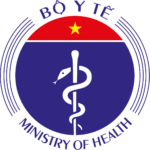
Combating the emergence and spread of antimicrobial resistant infectious diseases in Vietnam: The V-RESIST study
This is a collaboration between the National Institute of Hygiene and Epidemiology (NIHE), Vietnam and the Woolcock Institute of Medical Research (Woolcock), University of Sydney, Australia, which has been approved by the Vietnam Ministry of Health for implementation in Hanoi, Thanh Hoa, An Giang and Ca Mau provinces.
The overall aim of the VRESIST series of projects is to develop, implement and evaluate the effectiveness of AMS interventions to reduce inappropriate antimicrobial use in the local community and within district health facilities, in Vietnam.
Series of V-RESIST studies
Baseline studies
A range of formative baseline studies were conducted across 40 districts in Vietnam to understand the current situation in relation to appropriate use of antimicrobials in Vietnam and the facilitators and challenges to improve appropriate use of antimicrobials.
The sub-studies have been implemented:
-
- Mapping access to pharmacy services in Vietnam: which assessed the distribution of drug outlets and the sociodemographic characteristics of the communities they serve.
- A qualitative study among different stakeholders to understand Drivers of antibiotic use in Vietnam which helped in implications for designing community interventions.
- Standardised patients surveys to assess antibiotic supply at the community pharmacies settings in Vietnam for different viral and bacterial infections.
- Assessing health system barriers to the implementation of the national action plan to combat antimicrobial resistance in Vietnam.
- A narrative review to understand the most effective community-based antimicrobial stewardship interventions in low- and middle-income countries.
- Assessing financial gain of inappropriate supply of antibiotics for different infections among community pharmacies.
The studies comprised of 1,972 drug outlets, in 40 study clusters (containing 202 communes) across 4 provinces of Vietnam. The total population living within our study areas was 1.96 million people.
Intervention phase
A cluster randomised controlled trial to reduce inappropriate antibiotic use in district health facilities in Vietnam.
In coordination with the Ministry of Health, we prioritize our interventions in 20 district hospitals in Hanoi and Ca Mau province of Vietnam. The design of interventions is aligned with the strategy of the Ministry of Health.
– Formation of the health facility AMS Committee and AMS team
– Implementation of appropriate treatment guidelines for common viral infections and bacterial infections
– Provide training for clinical doctors on appropriate treatment using antibiotics
– Implementation of monthly audit and feedback
– Ongoing health promotion regarding appropriate antimicrobial
– Dissemination of health promotional materials to patients visiting out-patient departments as well as inpatients
Our analysis plan will include the effectiveness of interventions, as well as cost effectiveness along with qualitative data to provide evidence for policy makers and health system managers for scaling up and sustainability of the project.
Core stakeholders

Vietnam Administrative Medical Service

National Institute of Hygiene and Epidemiology

Hanoi University of Pharmacy

National Lung Hospital

University of Medicine and Pharmacy, Ho Chi Minh City

Health Strategy and Health Policy Institute

